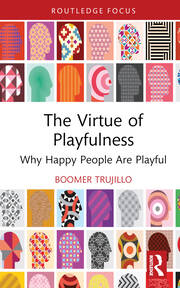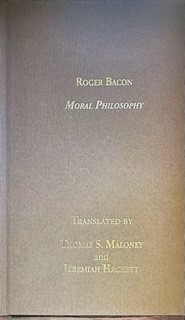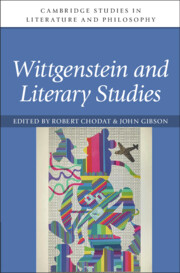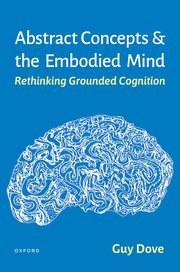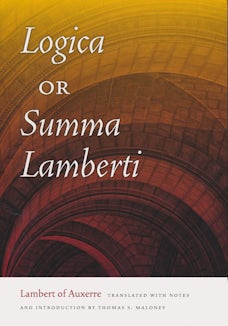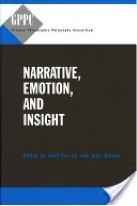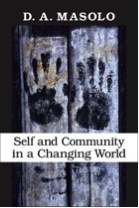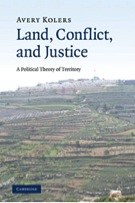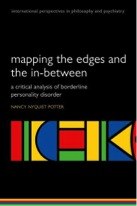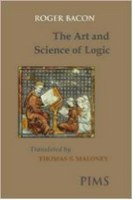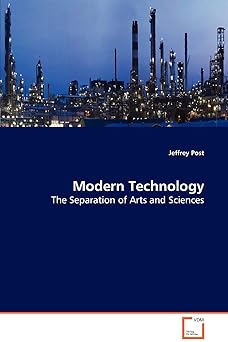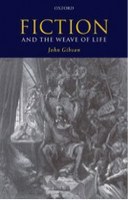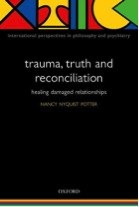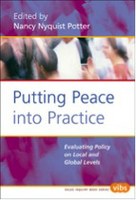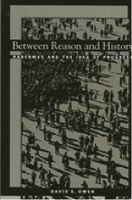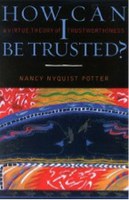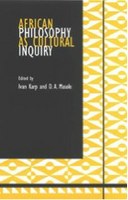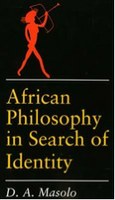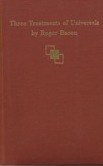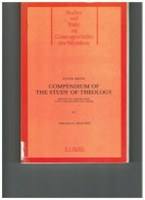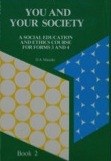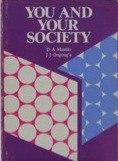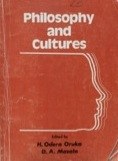Faculty Bookshelf
|
|
The Virtue of Playfulness: Why Happy People Are PlayfulBoomer Trujillo This book argues that in order for people to live well, they must develop a virtue of playfulness. Inspired by Aristotle, the book draws on work from philosophy, classics, history, biology, psychology, and media studies to understand the place of play and playfulness in a good life. Many philosophers have written about play, from Presocratics such as Heraclitus to contemporary philosophers such as Bernard Suits. Some champion play as the most crucial value in life. Others deride it and warn strongly against it. This book evaluates the research on how play and playfulness bear on living a good life and becoming a good person. Its main argument is that in order to understand play as an action, we must understand playfulness as a virtue in the lives of good people. The author develops a theory of playfulness from an Aristotelian perspective. Like Aristotle sees the virtues as necessary for a happy life, the author argues that playfulness is necessary for living well. And just as Aristotle offers multifaceted characterizations of core virtues, the author argues that playfulness includes aspects of seriousness, creativity, humility, optimism, and sociality. Playful people take play seriously, learn new skills, overcome failure, strive for success, and keep others in mind. As a result, playful people have a better shot at living well. The Virtue of Playfulness is an accessible, empirically informed, and detailed treatment of the philosophy of playfulness. It will appeal to scholars and students in philosophy and related disciplines who are interested in virtue ethics, moral psychology, philosophy of games, philosophy of sport, and ancient philosophy. |
|---|---|
|
|
Microaggressions in MedicineLauren Freeman and Heather Stewart Oxford University Press | 2023 In a world that too often marginalizes people based on their race, gender, sexual orientation, body size, or disability, medicine can often be no different. Far from “doing no harm,” it treats some patients unfairly, leading to detrimental effects. Guided by diverse patient testimonies and case studies, Microaggressions in Medicine focuses on the harms that such patients face. It amplifies their voices, stories, and experiences, which have too-often been excluded from mainstream bioethical, medical, and popular discussions. Microaggressions in medicine are not rare, but frequent in the healthcare experiences of marginalized patients. Recognizing this can help patients better understand and make sense of their experiences. As bioethicists Lauren Freeman and Heather Stewart argue, building such an awareness can also help current and future healthcare professionals recognize the serious and enduring consequences that microaggressions have on their patients. Freeman and Stewart offer practical strategies for healthcare professionals to reduce microaggressions in their practices. |
|
|
Roger Bacon: Moral PhilosophyTranslation by Thomas S. Maloney and Jeremiah Hackett Franciscan Institute Publications | 2023 The most modern translation of Bacon's Opus maius Part Seven (Moral Philosophy). Bacon makes clear in Moral Philosophy that studies such as truth, language studies, the applications of mathematics, the science of optics and the experimental sciences, are all intrinsically connected to the nature of moral philosophy. |
|
|
Wittgenstein and Literary StudiesPart of Cambridge Studies in Literature and Philosophy John Gibson, Editor Cambridge University Press | 2023 Wittgenstein is often regarded as the most important philosopher of the twentieth century, and in recent decades, his work has begun to play a prominent role in literary studies, particularly in debates over language, interpretation, and critical judgment. Wittgenstein and Literary Studies solidifies this critical movement, assembling recent critics and philosophers who understand Wittgenstein as a counterweight to longstanding tendencies in both literary studies and philosophical aesthetics. The essays here cover a wide range of topics. Why have contemporary writers been so drawn to Wittgenstein? What is a Wittgensteinian response to New Historicism, Post-Critique, and other major critical movements? How does Wittgenstein help us understand the nature of style, fiction, poetry, and the link between ethics and aesthetics? As the volume makes clear, Wittgenstein's work provides a rare bridge between professional philosophy and literary studies, offering us a way out of entrenched positions and their denials-what Wittgenstein himself called 'pictures' 'that held us captive.' |
|
|
Abstract Concepts & the Embodied Mind: Rethinking Grounded CognitionGuy Dove Oxford University Press | 2022 Our thoughts depend on knowledge about objects, people, properties, and events. To think about where we left our keys, what we are going to make for dinner, when we last fed the dogs, and how we are going to survive our next visit with our family, we need to know something about locations, keys, cooking, dogs, survival, families, and so on. As researchers have sought to explain how our brains can store and access such general knowledge, a growing body of evidence suggests that many of our concepts are grounded in action, emotion, and perception systems. |
|
|
Propelled: How Boredom, Frustration, and Anticipation Lead us to the Good LifeAndreas Elpidorou Oxford University Press | 2020 Many of our endeavors -- be it personal or communal, technological or artistic -- aim at eradicating all traces of dissatisfaction from our daily lives. They seek to cure us of our discontent in order to deliver us a fuller and flourishing existence. But what if ubiquitous pleasure and instant fulfilment make our lives worse, not better? What if discontent isn't an obstacle to the good life but one of its essential ingredients? In Propelled, Andreas Elpidorou makes a lively case for the value of discontent and illustrates how boredom, frustration, and anticipation are good for us. |
|
|
Microaggressions and PhilosophyLauren Freeman and Jeanine Weeks Schroer, Editors Routledge | 2020 This is the first book to offer a philosophical engagement with microaggressions. It aims to provide an intersectional analysis of microaggressions that cuts across multiple dimensions of oppression and marginalization, and to engage a variety of perspectives that have been sidelined within the discipline of philosophy. The volume gathers a diverse group of contributors: philosophers of color, philosophers with disabilities, philosophers of various nationalities and ethnicities, and philosophers of several gender identities. Their unique frames of analysis articulate both how the concept of microaggressions can be used to clarify and sharpen our understanding of subtler aspects of oppression and how analysis, expansion, and reconceiving the notion of a microaggression can deepen and extend its explanatory power. The essays in the volume seek to defend microaggressions from common critiques and to explain their impact beyond the context of college students. Some of the guiding questions that this volume explores include, but are not limited to, the following: Can microaggressions be established as a viable scientific concept? What roles do microaggressions play in other oppressive phenomena like transphobia, fat phobia, and abelism? How can epistemological challenges around microaggressions be addressed via feminist theory, critical race theory, disability theory, or epistemologies of ignorance? What insights can be gleaned from intersectional analyses of microaggressions? Are there domain-specific analyses of microaggressions that would give insight to features of that domain, i.e. microaggressions related to sexuality, athletics, immigration status, national origin, body type, or ability. Microaggressions and Philosophy features cutting-edge research on an important topic that will appeal to a wide range of students and scholars across disciplines. It includes perspectives from philosophy of psychology, empirically informed philosophy, feminist philosophy, critical race theory, disability theory, philosophy of language, philosophy of science, and social and political philosophy. |
|
|
Roger Bacon A Compendium of the Study of PhilosophyAuctores Britannici Medii Aevi Thomas Maloney, Editor Oxford University Press | 2019 Shortly after composing his Opus maius, Opus minus, and Opus tertium (1267) Bacon felt the need once again to call attention to obstacles to the achievement of wisdom placed by the Church, academia, and civil society in the early 1270s. This he did in Part I of his Compendium of the Study of Philosophy. But his explorations in 1267 of the need for the study of languages needed, he thought, further attention. So Part II of this follow-up work renews that call with greater fervour and detail and yields a presentation of the rudiments of Greek and Hebrew, indicating how knowledge of these is needed to interpret the scriptures accurately and how many errors result from failure to recognise this. |
|
|
Consciousness and Physicalism: A Defense of a Research ProgramAndreas Elpidorou and Guy Dove Routledge | 2018 Consciousness and Physicalism: A Defense of a Research Program explores the nature of consciousness and its place in the world, offering a revisionist account of what it means to say that consciousness is nothing over and above the physical. By synthesizing work in the philosophy of mind, metaphysics, and philosophy of science from the last twenty years and forging a dialogue with contemporary research in the empirical sciences of the mind, Andreas Elpidorou and Guy Dove advance and defend a novel formulation of physicalism. Although physicalism has been traditionally understood to be a metaphysical thesis, Elpidorou and Dove argue that there is an alternative and indeed preferable understanding of physicalism that both renders physicalism a scientifically informed explanatory project and allows us to make important progress in addressing the ontological problem of consciousness. Physicalism, Elpidorou and Dove hold, is best viewed not as a thesis (metaphysical or otherwise) but as an interdisciplinary research program that aims to compositionally explain all natural phenomena that are central to our understanding of our place in nature. Consciousness and Physicalism is replete with philosophical arguments and informed, through and through, by findings in many areas of scientific research. It advances the debate regarding the ontological status of consciousness. It will interest students and scholars in philosophy of mind, metaphysics, philosophy of cognitive science, and philosophy of science. And it will challenge both foes and friends of physicalism. |
|
|
Philosophy of Mind and Phenomenology: Conceptual and Empirical Approaches
Routledge | 2017 This volume identifies and develops how philosophy of mind and phenomenology interact in both conceptual and empirically-informed ways. The objective is to demonstrate that phenomenology, as the first-personal study of the contents and structures of our mentality, can provide us with insights into the understanding of the mind and can complement strictly analytical or empirically informed approaches to the study of the mind. Insofar as phenomenology, as the study or science of phenomena, allows the mind to appear, this collection shows how the mind can reappear through a constructive dialogue between different ways—phenomenological, analytical, and empirical—of understanding mentality.
|
|
|
The Virtue of Defiance and Psychiatric EngagementInternational Perspectives in Philosophy and Psychiatry Nancy Nyquist Potter Oxford University Press | 2016 What is defiance, and when does defiant behaviour impede one's ability to aim at flourishing? |
|
|
A Moral Theory of SolidarityAvery Kolers Oxford University Press | 2016 Accounts of solidarity typically defend it in teleological or loyalty terms, justifying it by invoking its goal of promoting justice or its expression of support for a shared community. Such solidarity seems to be a moral option rather than an obligation. In contrast, A Moral Theory of Solidarity develops a deontological theory grounded in equity. With extended reflection on the Spanish conquest of the Americas and the US Civil Rights movement, Kolers defines solidarity as political action on others' terms. Unlike mere alliances and coalitions, solidarity involves a disposition to defer to others' judgment about the best course of action. Such deference overrides individual conscience. Yet such deference is dangerous; a core challenge is then to determine when deference becomes appropriate. Winner of the 2017 Canadian Philosophical Association Biennial Book Prize |
|
|
The Philosophy of PoetryJohn Gibson, editor Oxford University Press | 2015 In recent years philosophers have produced important books on nearly all the major arts: the novel and painting, music and theatre, dance and architecture, conceptual art and even gardening. Poetry is the sole exception. This is an astonishing omission, one this collection of original essays will correct. If contemporary philosophy still regards metaphors such as 'Juliet is the sun' as a serious problem, one has an acute sense of how prepared it is to make philosophical and aesthetic sense of poems such W. B. Yeats's 'The Second Coming', Sylvia Plath's 'Daddy', or Paul Celan's 'Todesfuge'. The Philosophy of Poetry brings together philosophers of art, language, and mind to expose and address the array of problems poetry raises for philosophy. In doing so it lays the foundation for a proper philosophy of poetry, setting out the various puzzles and paradoxes that future work in the field will have to address. Given its breadth of approach, the volume is relevant not only to aesthetics but to all areas of philosophy concerned with meaning, truth, and the communicative and expressive powers of language more generally. Poetry is the last unexplored frontier in contemporary analytic aesthetics, and this volume offers a powerful demonstration of how central poetry should be to philosophy. |
|
|
The Routledge Companion to Philosophy of LiteratureNoël Carroll and John Gibson, Editors Routledge | 2015 The Companion opens with a comprehensive historical overview of the philosophy of literature, including chapters on the study’s ancient origins up to the 18th-20th centuries. The second part defines literature and its different categories. The third part covers the aesthetics of literature. The fourth and fifth sections discuss the meaning and consequences of philosophical interpretation of literature, as well as epistemological and metaphysical issues such as literary cognitivism and imaginative resistance. The sixth section contextualizes the place of philosophy of literature in the "real world" with essays on topics such as morality, politics, race and gender. Fully indexed, with helpful further reading sections at the end of each chapter, this Companion is an ideal starting point for those coming to philosophy of literature for the first time as well as a valuable reference for readers more familiar with the subject. |
|
|
Lambert of Auxerre Logica, or Summa LambertiThomas S. Maloney, Translator, with Introduction and Notes University of Notre Dame Press | 2015 The thirteenth-century logician Lambert of Auxerre was well known for his Summa Lamberti, or simply Logica, written in the mid-1250s, which became an authoritative textbook on logic in the Western tradition. Our knowledge of medieval logic comes in great part from Lambert's Logica and three other texts: William of Sherwood's Introductiones in logicam, Peter of Spain's Tractatus, and Roger Bacon's Summulae dialectics. Of the four, Lambert's work is the best example of question-summas that proceed principally by asking and answering questions on the subject matter. Thomas S. Maloney's translation of Logica, the only complete translation of this work in any language, is a milestone in the study of medieval logic. More than simply a translation, Maloney's project is a critical, comprehensive study of Lambert's logic situated in the context of his contemporaries and predecessors. As such, it offers a wealth of annotation and commentary. The lengthy introduction and extensive notes to the text explain the origin, theoretical context, and intricacies of the text and its doctrines. Maloney also addresses the disputed issues of authorship, date, and place of publication of the Summa Lamberti and makes available to the English-only audience the French, German, and Italian secondary sources—all translated—that are needed to enter the discussion. |
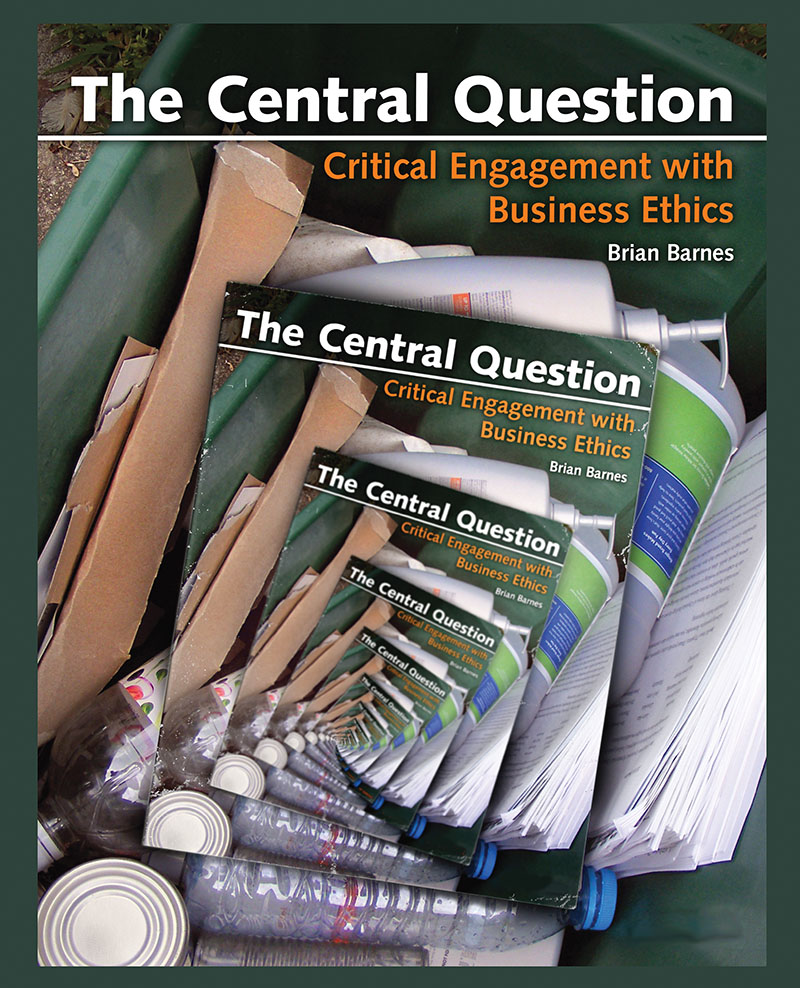 |
The Central Question: Critical Engagement With Business EthicsBrian Barnes Kendall Hunt Publishing | 2013 |
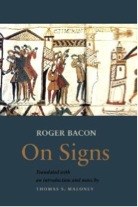
|
Roger Bacon On SignsMedieval Sources in Translation 54 Thomas Maloney, trans. with Introduction and Notes Pontifical Institute of Mediaeval Studies | 2013 In 1267 Roger Bacon composed the monumental work he titled Opus maius. It was an attempt to reconceptualize all of higher learning in a way that would demonstrate its beauty as well as make itself more useful in service to the Church. Part Three focused on the need for the study of language and languages for an understanding of human and divine sciences, and in this connection he dedicates Chapter Two to the development of his semiotics, drawing on work he had previously presented in a more sketchy manner. Challenging Augustine and his contemporaries, he contends that signs can be both material and nonmaterial; that words have both natural and conventional signification; that they can signify themselves; that they can be equivocal in at least four fundamentally different ways; and that they can lose their signification. Ampliation and restriction are instances of reimposition, he claims, and the use of the name of a dead man in present time is a case of equivocation and hence is the result of reimposition, something we do, he says, tacitly. The last part of the work is missing but he tells us that in it he intends to apply his semiotics to the sacraments and articulate the various levels of meaning in the Sacred Scriptures. |
|
|
Narrative, Emotion, and InsightJohn Gibson & Noël Carroll, eds.Penn State University Press | 2011 While narrative has been one of the liveliest and most productive areas of research in literary theory, discussions of the nature of emotional responses to art and of the cognitive value of art tend to concentrate almost exclusively on the problem of fiction: How can we emote over or learn from fictions? Narrative, Emotion, and Insight explores what would happen if aestheticians framed the matter differently, having narratives--rather than fictional characters and events--as the object of emotional and cognitive attention. The book thus opens up new possibilities for approaching questions about the ethical, educative, and cultural value of art. The nine essays in this volume introduce the study of narrative to contemporary aesthetics. |
|
|
Self and Community in a Changing WorldD.A. MasoloIndiana University Press | 2010 Revisiting African philosophy’s classic questions, D. A. Masolo advances understandings of what it means to be human—whether of African or other origin. Masolo reframes indigenous knowledge as diversity: How are we to understand the place and structure of consciousness? How does the everyday color the world we know? Where are the boundaries between self and other, universal and particular, and individual and community? From here, he takes a dramatic turn toward Africa’s current political situation and considers why individual rights and freedoms have not been recognized, respected, demanded, or enforced. Masolo offers solutions for containing socially destructive conduct and antisocial tendencies by engaging community. His unique thinking about community and the role of the individual extends African philosophy in new, global directions. Finalist for the Melville Herskovits Award for the Best Scholarly book published on/about Africa in the English language in the year. |
|
|
Land, Conflict, and Justice: A Political Theory of TerritoryAvery KolersCambridge University Press | 2009 Territorial disputes have defined modern politics, but political theorists and philosophers have said little about how to resolve such disputes fairly. Is it even possible to do so? If historical attachments or divine promises are decisive, it may not be. More significant than these largely subjective claims are the ways in which people interact with land over time. Building from this insight, Avery Kolers evaluates existing political theories and develops an attractive alternative. He presents a novel link between political legitimacy and environmental stewardship, and applies these ideas in an extended and balanced discussion of the Israeli-Palestinian dispute. The result is the first systematic normative theory of territory, and an impressive example of applied philosophy. In addition to political theorists and philosophers, scholars and students of sociology, international relations, and human geography will find this book rewarding, as will anyone with wider interests in territory and justice. Land, Conflict, and Justice won the 2011 Canadian Philosophical Association biennial book prize. |
|
|
Mapping the Edges and the In-between: A Critical Analysis of Borderline Personality DisorderNancy Nyquist PotterOxford University Press | 2009 International Perspectives in Philosophy and Psychiatry
|
|
|
Roger Bacon. The Art and Science of LogicMedieval Sources in Translation 47 Thomas Maloney, trans. with Introduction and Notes Pontifical Institute of Mediaeval Studies | 2009 At the end of Roger Bacon’s first period in Paris in the 1240s he composed a textbook on Logic, and it is noteworthy (a) for the breadth of his sources (many in the sciences), (b) for the unorthodox theory that a term is a name only of present existing things and cannot signify past or future things under the same name without reimposition, and (c) a much fuller use and analysis of Aristotle’s Posterior Analytics than customary. |
|
|
Modern Technology: The Separation of Arts and SciencesJeffrey PostVDM Verlag | 2008 Technology is created, developed, and modified for the purpose of efficiency in production. The progress of a culture is measured in terms of the techniques developed and used by that culture. While technology advances, social problems and economic inequality remain stagnate or worsen in our advanced" society and time. This book is a reaction to the historical shift toward the modern virtues of production and efficiency that has led to the separation of arts and sciences resulting in a perversion of values and priorities. My analysis begins with the Greeks runs though the Medieval period the Industrial Revolution and ends with the difficulties of modernity. A recovery of the principles of the Aristotelian teleology in addition to solutions proposed by contemporary philosophers such as Albert Borgmann and Carl Mitcham are proposed in order to alleviate the rupture and reverse the perversion of values. " |
|
|
Fiction and the Weave of LifeJohn GibsonOxford University Press | 2007 Literature is a source of understanding and insight into the human condition. Yet ever since Aristotle, philosophers have struggled to provide a plausible account of how this can be the case. For surely the fictionality - the sheer invented character - of the literary work means that literature concerns itself not with the real world but with other worlds - what are commonly called fictional worlds. How is it, then, that fictions can tell us something of consequence about reality? In Fiction and the Weave of Life, John Gibson offers a novel and intriguing account of the relationship between literature and life, and shows that literature's great cultural and cognitive value is inseparable from its fictionality and inventiveness. |
|
|
Trauma, Truth and Reconciliation: Healing Damaged RelationshipsNancy Nyquist Potter, ed.Oxford University Press | 2006 International Perspectives in Philosophy and Psychiatry A unique book examining the role of forgiveness in recovery from trauma, showing how it plays a central role in healing those who have been wronged by others. Provides a cross-cultural approach showing how in the West we can learn from the approaches taken by other cultures Written to be accessible and informative for psychiatrists and psychotherapists interested in trauma, philosophers, and theologians |
|
|
The Literary WittgensteinJohn Gibson & Wolfgang Huemer, eds.Routledge |2004 Amid growing recognition that Wittgenstein's philosophy has important implications for literary studies, this book brings together twenty-one articles by the most prominent figures in the field. Eighteen of the articles are published here for the first time. |
|
|
Putting Peace into Practice: Evaluating Policy on Local and Global LevelsValue Inquiry Book Series 164Nancy Nyquist Potter, ed.Rodopi Press | 2004 This book examines the role and limits of policies in shaping attitudes and actions toward war, violence, and peace. Authors examine militaristic language and metaphor, effects of media violence on children, humanitarian intervention, sanctions, peacemaking, sex offender treatment programs, nationalism, cosmopolitanism, community, and political forgiveness to identify problem policies and develop better ones. |
|
|
Between Reason and History: Habermas and the Idea of ProgressDavid OwenState University of New York Press | 2002 Between Reason and History examines the role of the idea of progress both in Jurgen Habermas’s critical social theory and in critical social theory in general. The reception to Habermas’s magnum opus, The Theory of Communicative Action, has tended to downplay the theory of social evolution it contains, but there are no in-depth examinations of this aspect of Habermas’s critical theory. This book fills this gap by providing a comprehensive and detailed examination of Habermas’s theory of social evolution, its significance within the wider scope of his critical social theory, and the importance of a theoretical understanding of history for any adequate critical social theory. |
|
|
How Can I Be Trusted? A Virtue Theory of TrustworthinessNancy Nyquist PotterRowman & Littlefield | 2002 This work examines the concept of trust in the light of virtue theory, and takes our responsibility to be trustworthy as central. Rather than thinking of trust as risk-taking, Potter views it as equally a matter of responsibility-taking.How Can I Be Trusted?illustrates that relations of trust are never independent from considerations of power, and that the trustee has a moral obligation not to exploit the vulnerability of the trusting person. Asking ourselves what we can do to be trustworthy allows us to move beyond adversarial trust relationships and toward a more democratic, just, and peaceful society. |
|
|
African Philosophy as Cultural InquiryD. A. Masolo & Ivan Karp, eds.Indiana University Press | 2000 in association with the International African Institute, University of London This book assesses the direction and impact of African philosophy as well as its future role. |
|
|
African Philosophy in Search of IdentityD. A. MasoloIndiana University Press & Edinburgh University Press| 1994 A Kenyan philosopher surveys themes and debates in African philosophy over the last five decades. Masolo’s purview includes Francophone and Anglophone philosophers in both the analytic and phenomenological traditions. |
|
|
Roger Bacon. Three Treatments of UniversalsMedieval & Renaissance Text & Studies 66 Thomas Maloney, trans. with Introduction and Notes Mrts | 1989 At three points in his life, in his Questiones super Metaphysicam Aristotelis, Questiones altere super Metaphysicam Aristotelis,andhis Communia naturalia, Roger Bacon expressly addressed the question of universals. In the Introduction to this work the translator argues that on each occasion Bacon reveals himself to be a realist in that he consistently maintained that all individual things of a class have within them a common nature consisting of common matter and form in addition each individual’s own proper matter and form, both natures instantiated by one act of existence. |
|
|
Roger Bacon. A Compendium of the Study of Theology.Studien und Texte zur Geistesgeschichte des Mittelalters 20 Thomas Maloney, trans. with Introduction and Notes E. J. Brill | 1988 In or around the year of Roger Bacon’s death in 1292, the Franciscan composed his last known work in something of a desperate attempt to gain the recognition he felt he had been denied by his peers throughout his professional career. The work contains three parts, each a recapitulation of material found in his previous works. In Part One he speaks of the need to share wisdom and reminds his colleagues of the causes of the failure of the academic enterprise in his lifetime. In Part Two he re-presents (with insignificant changes) his semiotics with most attention given to the many different modalities in which words signify. Part Three (now missing) applies his semiotics to the sacraments and the various levels of meaning in Sacred Scripture. |
|
|
You and Your Society, Book 2D.A. MasoloNairobi: Longman Kenya |1988 A Social Education and Ethics Course |
|
|
You and Your SocietyD.A. Masolo and J.J. Ongong’aNairobi: Longman Kenya |1987 Social Education and Ethics for Junior Secondary Schools |
|
|
Philosophy and Culturesed. H. Odera Oruka and D.A. MasoloNairobi: Bookwise, Ltd. |1983 Proceedings of 2nd Afro-Asian Philosophy Conference, Nairobi, October/November, 1981 |

